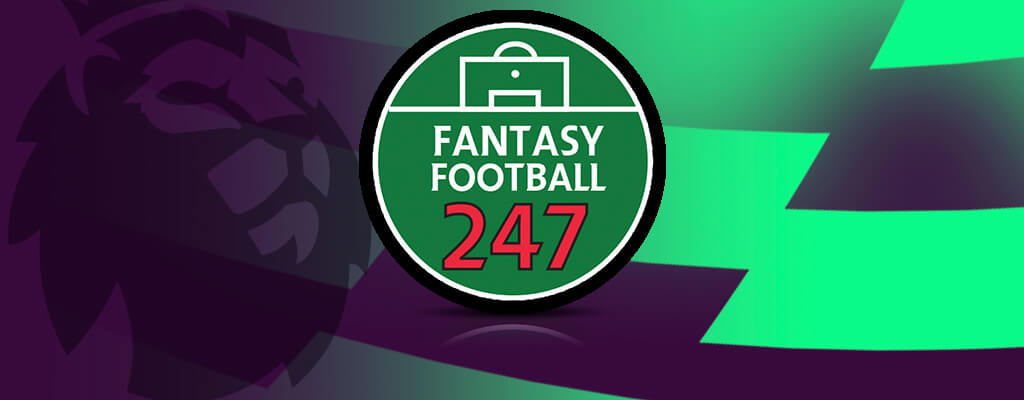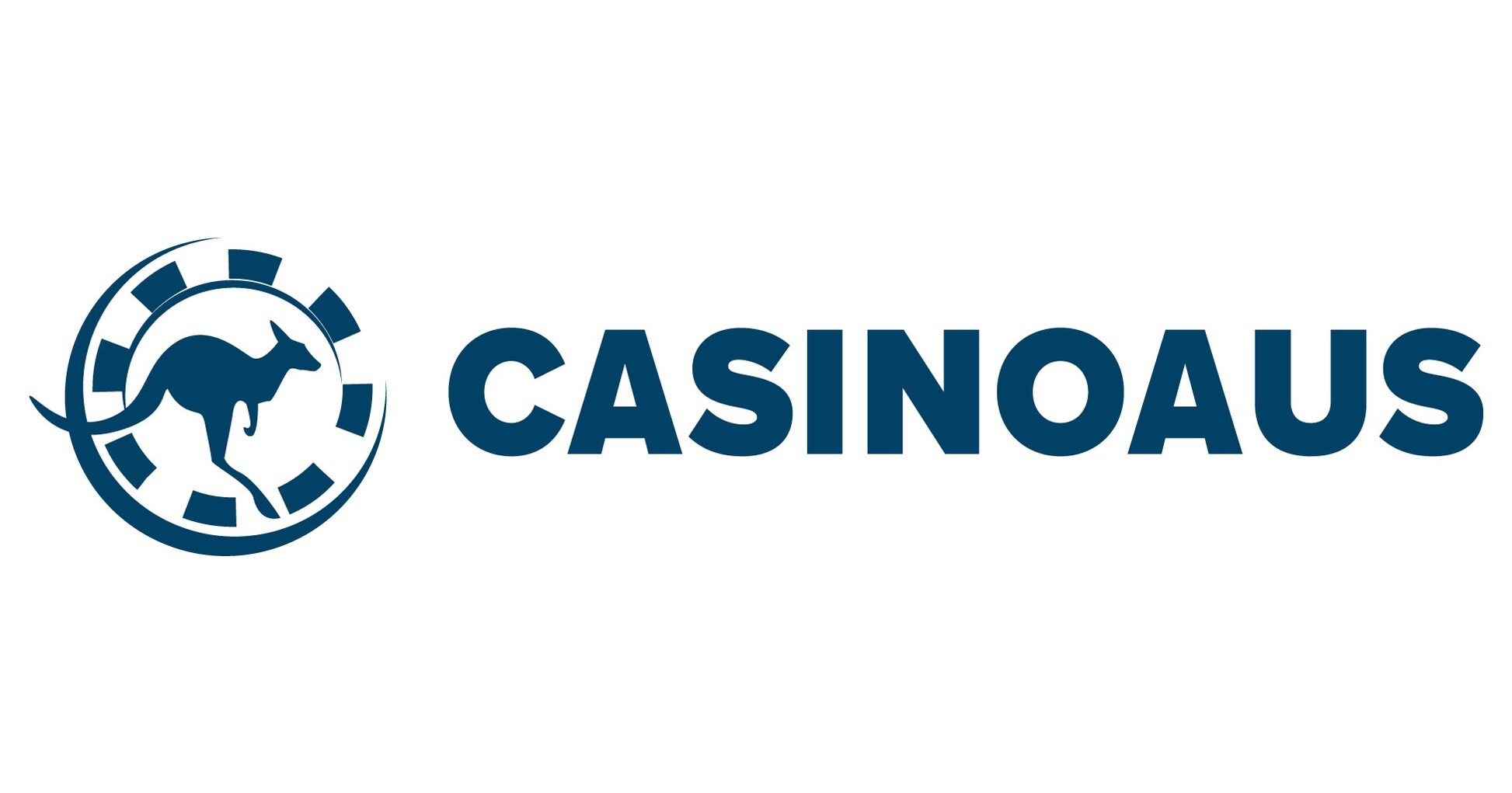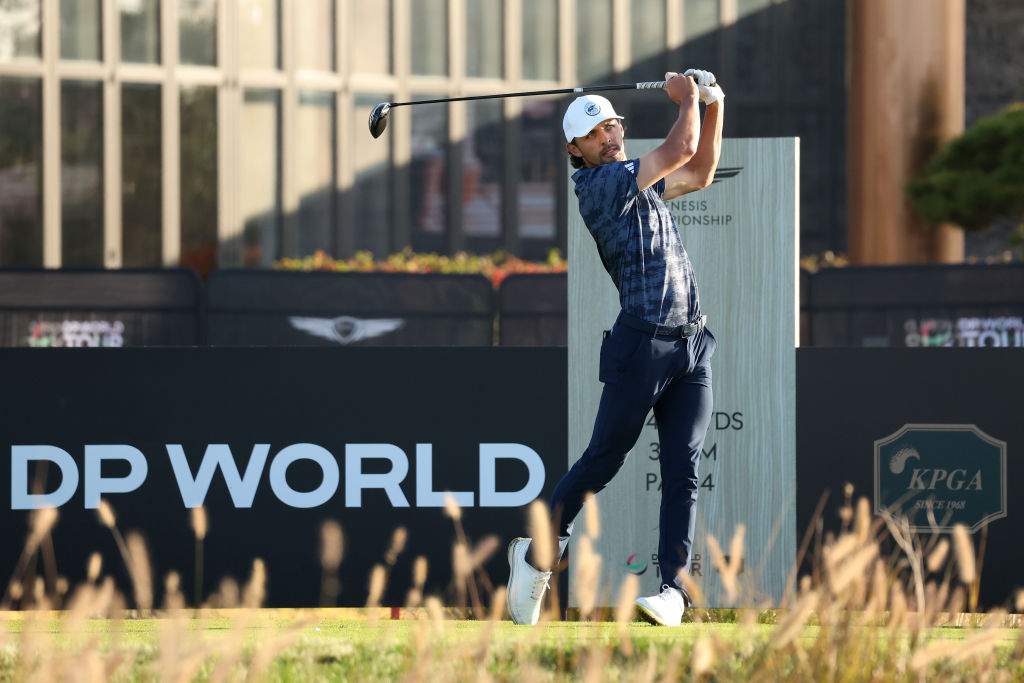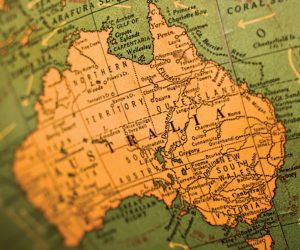‘It’s an Aussie invasion’: Inside the NRL’s big gamble as rugby league rolls into Vegas

- by Admin
- March 2, 2024
Amid the flashing lights and blaring signs of downtown Las Vegas, throngs of tourists are dressed in maroon, red and green, and red and white.
They call to each other in Aussie accents, pose for photos with lurid buskers, and keep pointing to the LED ceiling over the retro-inspired Fremont Street strip. It’s emblazoned with the words “rugby league in Las Vegas”.
The NRL and NRLW season launch has been repurposed as an event to welcome fans to Las Vegas for the opening men’s games, marking the league’s bold bid to push into America.
“It’s great to see so many rugby league fans here,” Daly Cherry-Evans, captain of the Manly Warringah Sea Eagles, tells the downtown crowd after walking on stage to cheers.
The opening two games of the NRL – Rabbitohs vs Sea Eagles, followed by Broncos vs Roosters – will be played at Allegiant Stadium, which hosted the Super Bowl only a few weeks ago.
Players stop to take photos and sign jerseys for fans as they stride down a red carpet on Fremont Street.
“Good luck with the game, mate,” one man calls out to a passing Rabbitohs player, while holding up a red and green scarf emblazoned with the team’s motto: “til I die”.
Among the fans who’ve travelled from Australia are Andy Nicolopoulos, his mum Vicki Nicolopoulos and stepdad George Abo.
“That’s our game, so we’ve gotta come and watch it,” says Andy, repping a blue Bulldogs jersey even though his team’s not playing here.
“We’ve got to represent the hood,” George chimes in.
“Any excuse to come to Vegas. It’s an Aussie invasion, there’s Aussies everywhere.”
The NRL’s game plan
A neon-lit entertainment haven in the middle of the desert; what better place for Australian rugby league to take a gamble?
The NRL has its sights set on the potential for new broadcast and sports betting deals, with a five-year plan to play games in the United States.
In Las Vegas ahead of the opening round, NRL chief executive Andrew Abdo says the venture’s a long-term attempt to gain American fans.
“The measure of success for us is how many Americans we have following our sport throughout the season, how engaged they are – TV ratings are really important in America,” he says.
He won’t put an exact figure on the price of hosting the games overseas, but says revenue from ticket sales, sponsorships and local partners – which include the UFC and NASCAR – have offset some of the costs.
Around 40,000 tickets have been sold, which is more than two-thirds of the capacity at Allegiant Stadium.
Fox Sports 1 will broadcast the round to American audiences on cable.
Building on a niche following
A booming American sports betting market is another drawcard. The practice was only legalised outside of Nevada less than six years ago.
Mr Abdo says the NRL is working towards an exclusive partnership with a sports book in America.
“We want to make sure we partner with the right partner, and a partner that’s going to help us win new fans – that’s the key thing,” he says.
“At the moment we have a very small, niche following.
“If we can grow that and get a couple of hundred thousand fans engaged, well for us, that is huge.”
The NRL organised an adjacent rugby nines tournament for the weekend, ensuring hundreds of grassroots American players would be in Las Vegas for the opening round games.
Tiana Granby is one of many seizing the opportunity to watch the Australian league live.
She’s a Rabbitohs fan, and plays for ROOTS Rugby Family, a team dedicated to the African diaspora.
Her husband also plays, and their three kids are “all in” on the sport.
“It’s fast. The contact, I think it allows more opportunity for creativity,” she says.
“You know, once you’re off with a ball, it’s about keeping the ball, not getting tackled, so to be able to manipulate the defence in a different way than you are in union – it’s just a lot of fun.”
Dustin Zerrer, who hosts a podcast about rugby league in America, has been commentating the nines event and rubbing shoulders with big Australian names like former Sharks captain Paul Gallen.
The North Carolinian discovered the game when he was up late one night in college; after “a few beverages” he stumbled on a cable channel showing the 2001 grand final between the Parramatta Eels and the Newcastle Knights.
He tuned in when Parramatta were behind and decided to back them because they seemed like the underdogs.
“I came to find out they were the heavy favourites, and they failed,” he says. “I’ve been an Eels fan ever since.”
Mr Zerrer says the game’s intensity and its similarities with American football are its best selling points in the US.
He’s been observing a slow but steady growth in interest through his podcast.
“I think you’d be surprised,” he says.
“We’ve seen a big increase in the number of followers on our YouTube channel and on some of our other social media platforms that are actually from the United States.”
Betting big on a booming market
It’s easier to bet on sports in America than ever before.
Sports betting was illegal anywhere outside Nevada until 2018, when a decision from the US Supreme Court opened the door for other states to allow it.
Since then, betting apps have proliferated and sports leagues like the NFL have abandoned a previous resistance to gambling.
Betting is deeply woven into Australian rugby league.
About half of the code’s elite teams have partnerships with gambling or casino companies, including sponsorships splashed on jerseys. The NRL also makes a cut from bookmakers in Australia.
“The United States is many years behind Australia,” says Marc Edelman, a law professor focused on sports ethics at New York’s Baruch College.
But American sports books are increasingly offering minor league and niche sports alongside the major national leagues.
There’s also a segment of sports betters who will “bet on anything at any time”, Mr Edelman says.
“If most of the [NRL] games are actually played in Australia, it’ll allow things for people to bet on at times in the day where there’s nothing to bet on in the United States,” he said.
“I certainly hope that the driving force is not exclusively or primarily gambling. But it also is one more revenue stream and one more reason, in addition to all the others, that this might be looked at at this time.”
The rapid expansion of the American market is coinciding with pushback to the prevalence of sports betting in Australia.
“The way sport has changed as a result of gambling and wagering content is really disappointing,” says Carol Bennett from Australia’s Alliance on Gambling Reform.
“That competition is intended to go over to the US and get hold of a bigger gambling market than Australia.
“It’s really sad, and it’s sport at its worst, when you see sport being used as wagering content.”
‘This is my Super Bowl’
There are true believers who think Americans will take a genuine interest in the NRL.
Former St George player David Niu, who has been living in the States for years, has always believed rugby league could take off in America.
He feels the time is right due to the NRL’s business success, current leadership and the calibre at the elite level.
“I think to do anything great and anything grand, you’ve got to take big risks for big rewards,” he says.
“It’s a fantastic opportunity for anyone who knows a little bit about rugby league to really get excited, and anyone who’s new to the game to get a good look at it and understand and be like, ‘this is something that I’d enjoy and I’d support’.”
At the grassroots level, people are talking about the promise of growth.
Sami Oliveri, from Tampa, Florida, is excited to watch the NRL live instead of via social media clips.
“I have a feeling that just being there in person, being there in the stadium – I know the energy is going to be wild,” she says.
“This is my Super Bowl!”
Chasing American eyeballs
But sports economist Andrew Zimbalist, from Smith College in Massachusetts, has a blunt assessment of NRL’s chances in the US.
“I don’t think it has a prayer,” he says.
“Frankly, we have sports leagues galore in the United States … and I don’t see a lot of room for any others.”
The initial advertising for the Vegas round – leaning heavily on the game’s contrast with the NFL, particularly its lack of protective gear – is probably not as novel to Americans as some might think, he says.
“I don’t think there’s such novelty [with the NRL] that all of a sudden the light will turn on and people say, ‘Oh, this is even cooler than American football’,” he says.
“In fact, one of the major existential questions that the NFL faces in the United States is precisely that it is so dangerous already.”
A more recent explainer, voiced by Hollywood actor and mad rugby league fan Russell Crowe, has been generally considered a stronger sell to American audiences.
In his gravelly Australian accent, Crowe explains the ground rules while emphasising the way the game is similar to American football, and where it differs – for example, all players remain on the field for offence and defence, and unlike in often protracted NFL games, there are no timeouts.
Football leagues played in the US spring have had limited success; other sports popular overseas, like soccer, have taken a relatively long time to capture American hearts and minds.
“The market may be a little saturated for a game that’s sort of like one we already have,” says University of Maryland sports economist Dennis Coates.
He believes the NRL will need to be willing to lose money without any guarantee of a final pay-off.
“It’s like buying a lottery ticket, in the sense that, you’re almost surely going to lose. But if you win – you may win really big,” he says.
Additional reporting: Chloe Hart
The Latest News
-
December 26, 2024Texas Freshman Tennis Star Maya Joint To Turn Pro Ahead Of Australian Open
-
December 26, 2024Injured Halep forced to pull out of Australian Open
-
December 26, 2024Australian Open 2025: Simona Halep withdraws from qualifying because of injury
-
December 26, 2024As big changes come to the PGA Tour, a look back at the complicated path to all-exempt era – Australian Golf Digest
-
December 26, 2024Rules of Golf Review: It was only a tap-in, but my opponent raked his putt into the hole. Is that legal? – Australian Golf Digest





